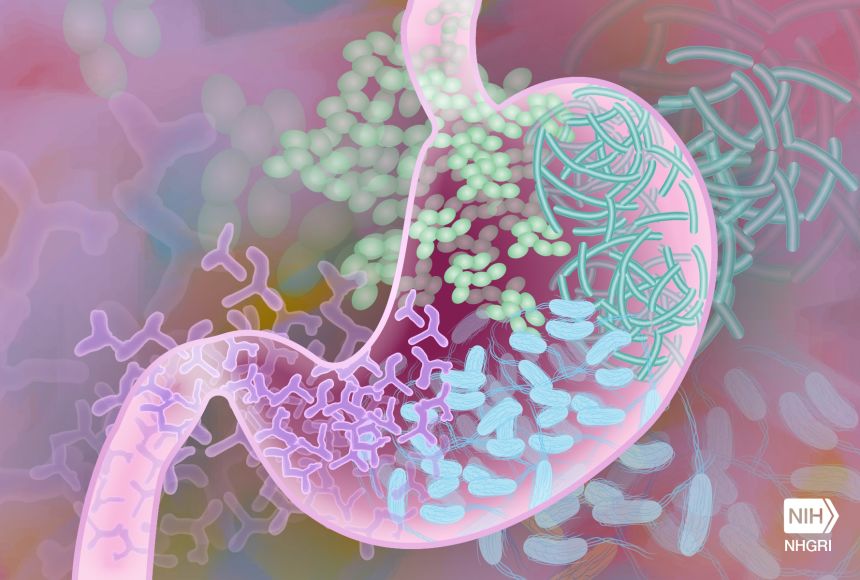Our guts, or intestines, are home to large collections of bacteria. These bacteria play an important role in digesting the food we eat. The bacteria are part of the gut microbiome. A microbiome is the collection of microbes, like bacteria, in a particular place. Your gut's microbiome is home to hundreds of species of bacteria. The gut microbiome plays a role in nutrition. It also affects our health in other ways. It might be the reason we are cheerful or depressed, or healthy or sick.
Poop Is Everywhere, But That's A Good Thing
When you are born, you pass through your mother's birth canal. You start collecting bacteria there. You pick up even more through your mother's milk. Milk contains substances that only bacteria can break down. Milk gives infants helpful microbes. It also supplies those microbes with something to eat.
By the time kids turn 3, their microbiomes are fully established. This means that they have come in contact with a large number of fecal particles, or bits of poop. According to microbiologists, scientists who study microbes, the environment is pretty much coated in fecal particles. It might sound gross, but it is a good thing. The bacteria we collect provide us with enzymes and vitamins. They help us battle infections. They make chemicals necessary for our mental health and well-being.
Processed Foods Can Kill Off Good Bacteria
Our bacteria also protect us from a wide range of illnesses. But recently, scientists say that there has been an increase in certain illnesses in the population. The number of people who are overweight has increased. Allergies, asthma, arthritis and heart disease have also increased. Scientists think that the increase in these illnesses means that something is wrong with the bacterial populations in our guts.
The problem might be a leaky epithelium. The epithelium is the lining of the digestive tube. It acts as a barrier between your gut bacteria and the rest of your body. Bacteria keep epithelial cells healthy by providing them with nutrition. But without the right bacteria, the epithelium breaks down. Bacteria and toxic bacterial by-products enter the bloodstream. This sends a signal to the immune system, which is the body's defense system, alerting it to the presence of invaders. This can lead to inflammation and diseases.
In countries like the United States, lifestyle choices have killed off some of our gut microbes. These lifestyle choices include eating too much processed foods, or foods treated with chemicals. People have overused antibiotics, or medicines that fight against bacterial infections. These choices have resulted in a microbiome that does not have many helpful types of bacteria. Many modern diseases may be occurring because our microbiomes aren't what they used to be.
Exercising, Eating Fiber-Rich Foods Can Help
How can you keep your microbiome healthy? Scientists and doctors say not to depend on probiotics that you can buy from the supermarket. They recommend a diet rich in probiotic fermented foods. These are foods in which the molecules are broken down by yeast or bacteria. Examples include yogurt, sauerkraut and miso soup. Fiber-rich foods are also good. These include whole grains, fruits and vegetables.
Junk food doesn't do our gut bacteria any good, either. It is also a good idea to avoid processed foods. These foods do not provide much nourishment for your gut bacteria. Exercise also benefits our guts. One study compared rugby players to nonathletes. It found that the rugby players had a greater variety of microbes. Finally, you might want to expand your environment. The more different kinds of bacteria you pick up, the better. So meet new people, pat the dog and play in the dirt.

